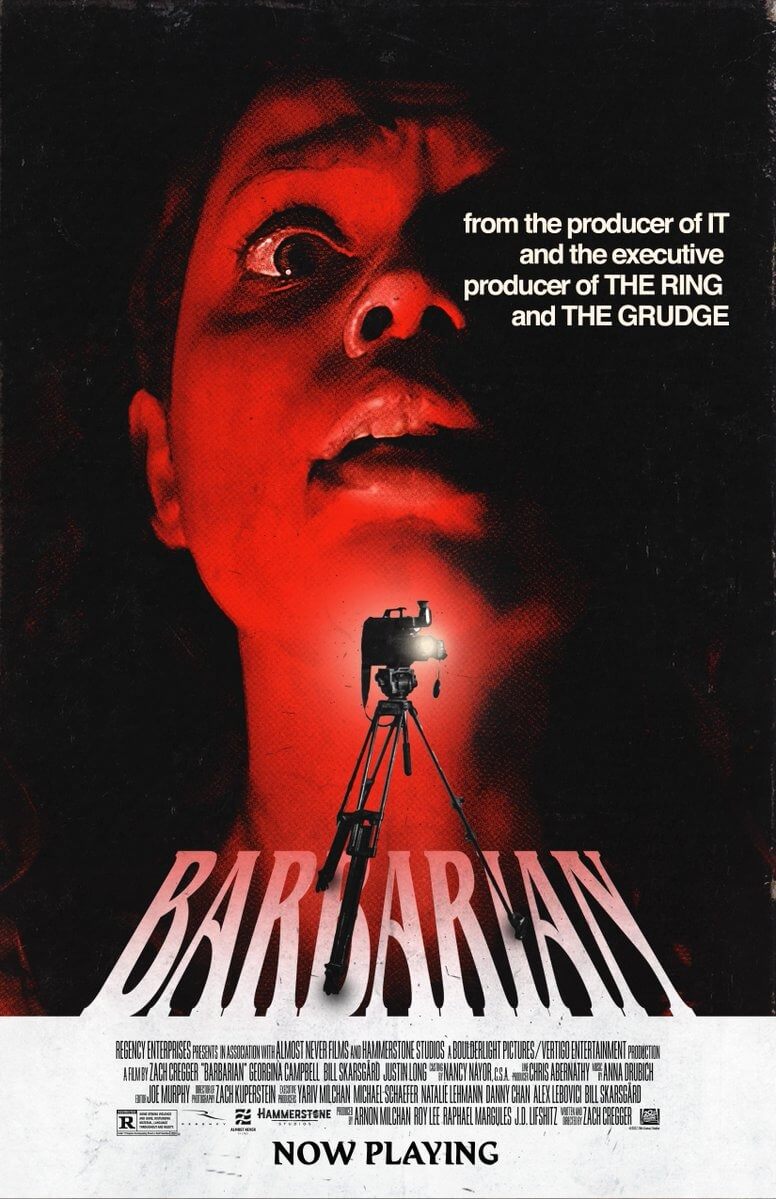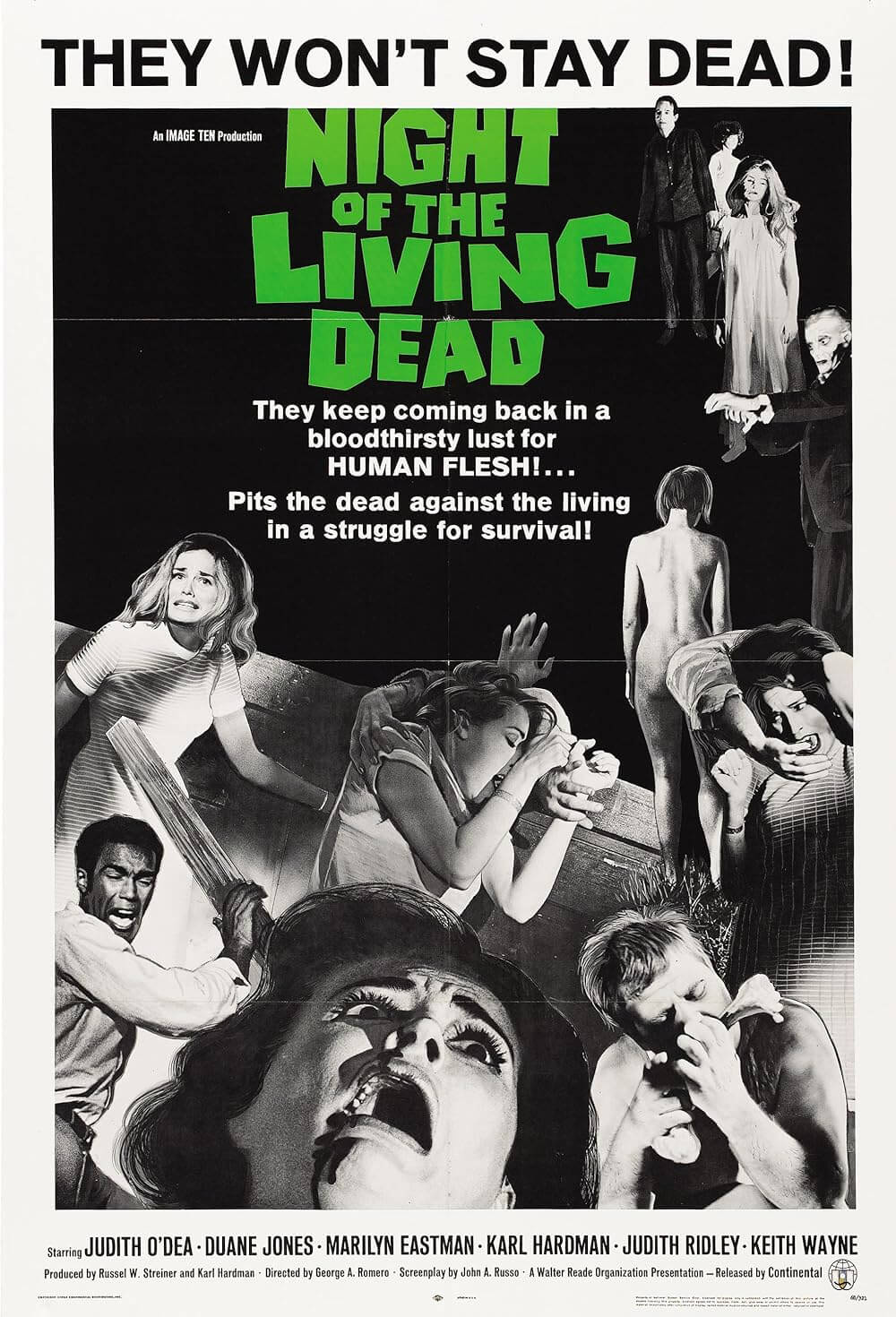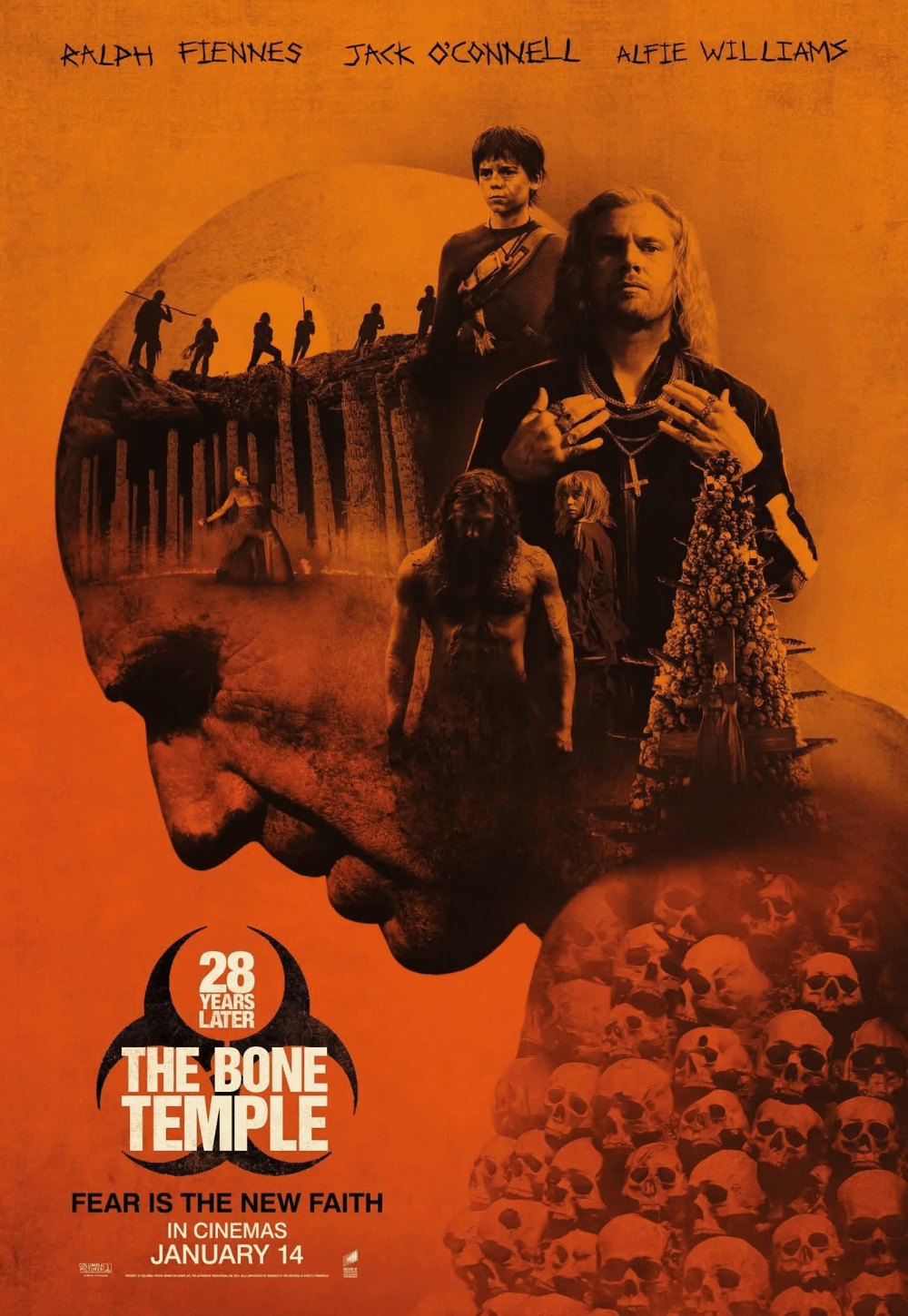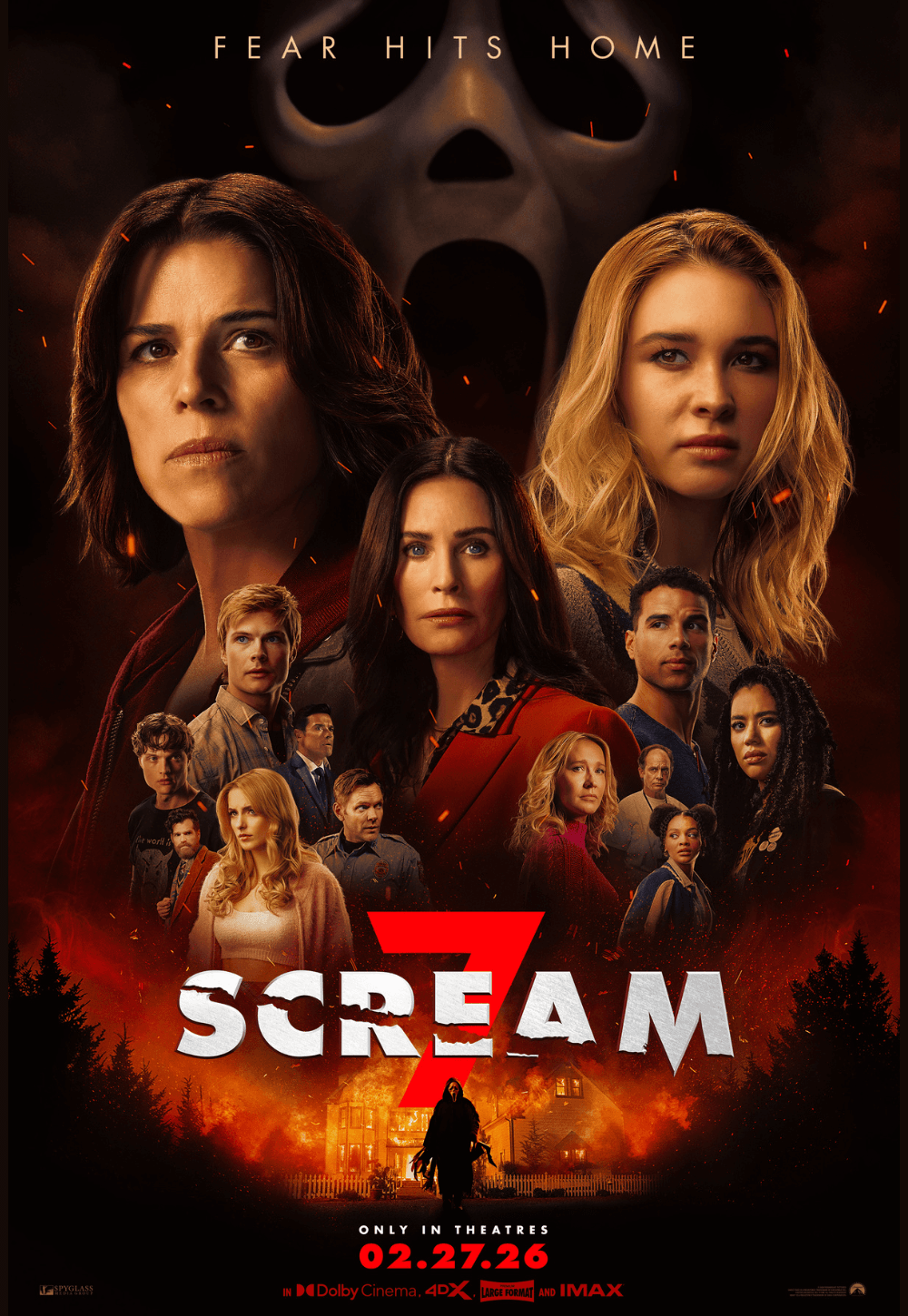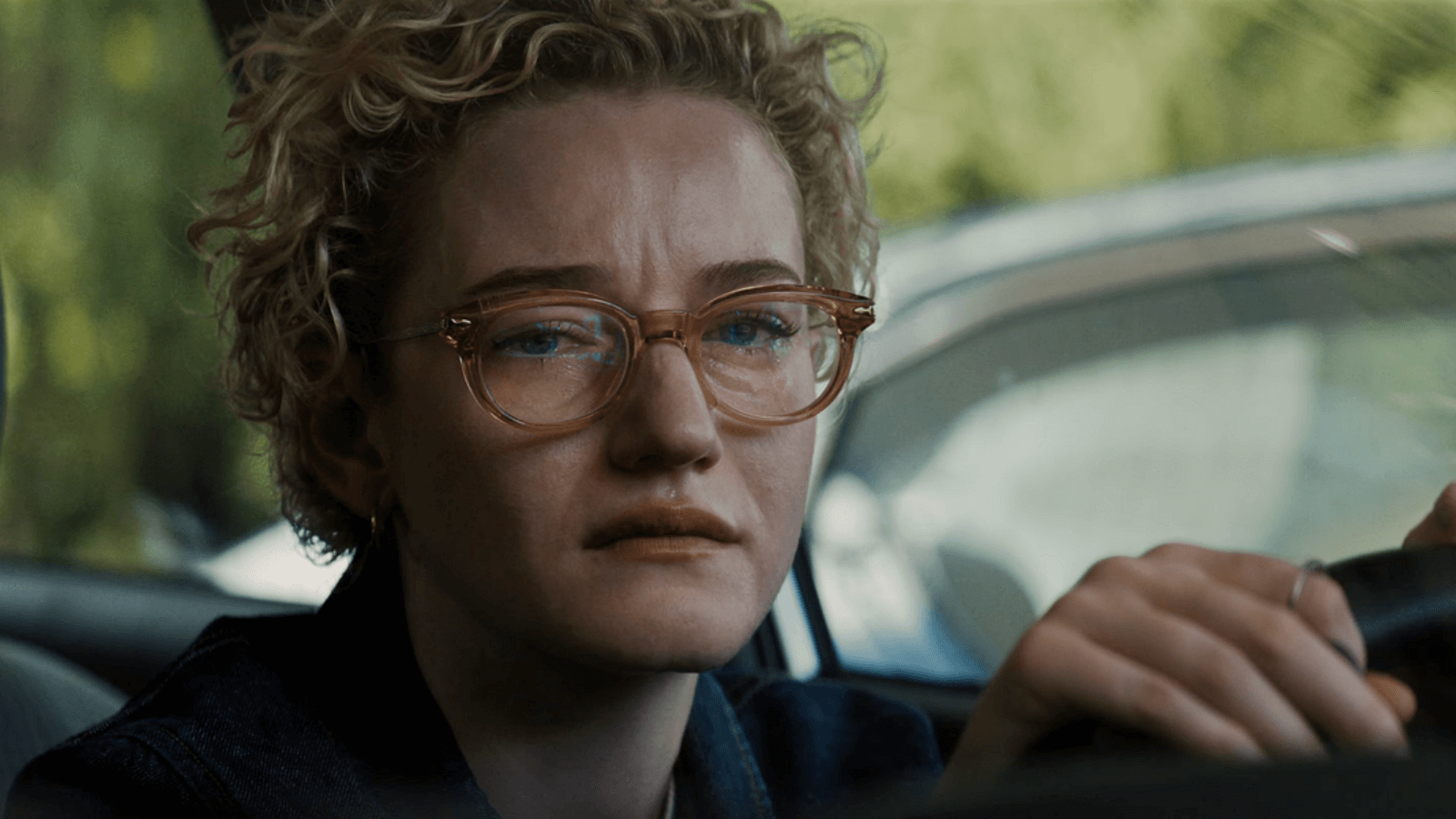
Weapons
By Brian Eggert |
Zach Cregger blends a dark fairy tale with notes of a creepy urban legend in Weapons, the writer-director’s second unnerving, disturbingly funny, and shocking film. After making a memorable debut with 2022’s sleeper hit Barbarian—about a nightmarish Airbnb on a forgotten street—Cregger returns to suburbia to uncover the twisted answers to this movie’s central question: What happened to the 17 missing children from Justine Gandy’s classroom? One night, at 2:17 a.m., all the children from her class, except for one, woke up, ran into the night with their arms outstretched, and disappeared without a trace. The answers come gradually and with the promise that “A lot of people die in a lot of weird ways.” That’s an understatement, given the squirming and gasping I heard (and participated in) throughout my screening. Although the destination proves less satisfying than the journey, the filmmaker demonstrates once again his skill at turning the screws on his audience, heightening the tension with patience, using jarring imagery, and creating an insidiously familiar backdrop out of residential America. Similar to Barbarian, the less one says about the plot of Weapons, the better, as it will surely become one of the most buzzed-about horror movies of 2025.
After making Barbarian for just over $4 million, Cregger received a considerable upgrade on Weapons thanks to the $38 million supplied by New Line Cinema after a bidding war for his script, meaning he could afford a larger canvas and more stars than in his freshman effort. The filmmaker nonetheless delivers a similarly themed work that manipulates the audience with the same unpredictable energy of head-spinning twists and bizarre revelations. Moreover, Cregger has openly acknowledged the influence of Paul Thomas Anderson’s Magnolia (1999) on this multi-perspective mosaic, though Anderson’s film remains far more nebulous and open to interpretation than Cregger’s relatively straightforward agenda. Once the viewer arrives at the film’s conclusion, few questions remain about what happened and why, and that limits the amount of space Weapons occupies in the viewer’s mind afterward. Even so, it’s quite a ride for the 129-minute duration, with the director drawing from his comic roots (as a founding member of The Whitest Kids U’Know) to craft a series of horror setups and payoffs like the structure of a joke or comedic sketch.
A month after 17 children disappear, the townspeople of Maybrook still haven’t received answers. A community meeting gives them a chance to air their frustrations, and they point their self-righteous fingers at Justine Gandy (Julia Garner), the teacher who arrived at school one day to find her entire third-grade class missing, save for the quiet Alex (Cary Christopher). Her boss, Principal Marcus (Benedict Wong), defends her from the fraught parents, but he also puts Justine on paid leave. She has a complicated past that makes her presence at school ill-advised under the circumstances. However, she cannot help but keep track of Alex out of genuine concern. After all, she wants answers too, even as she endures harassment and someone scrawling “witch” on the side of her vehicle. The town’s accusatory, angry mob energy extends to Archer (Josh Brolin), a parent whose son went missing that night. But the more Archer follows up with the police and investigates on his own, the more he realizes Justine probably isn’t responsible. If there’s a substantive message here, it’s that groups of people seldom have the patience to face the unknown, preferring to pick the easiest or first available scapegoat, while the real culprit makes plans in the dark.
The story unfolds in a series of chapters, each named after the character in focus. Besides Justine, Marcus, and Archer, the chapters also follow a local cop, Paul (Alden Ehrenreich), who, in addition to his romantic history with Justine, also deals with a spouse (June Diane Raphael) intent on having children. Another chapter follows Anthony (Austin Abrams), a junkie who breaks into the wrong house. Cregger structures his screenplay like a puzzle, shifting perspectives to get another angle on the story à la Pulp Fiction (1994). This narrative gamesmanship leads to some freaky sights, including the appearance in Justine and Archer’s dreams of a clown-faced woman (Amy Madigan)—who looks like Katherine Helmond from Brazil (1985) had a child with Nicolas Cage from Longlegs (2024). Cregger’s choices about when to reveal information to the audience fuel the suspense and mounting terror. And just as he approaches answering one of our many questions, he shifts to a different perspective in a cinematic edging technique that gradually gives way to a bloody, delirious, and mostly satisfying climax.
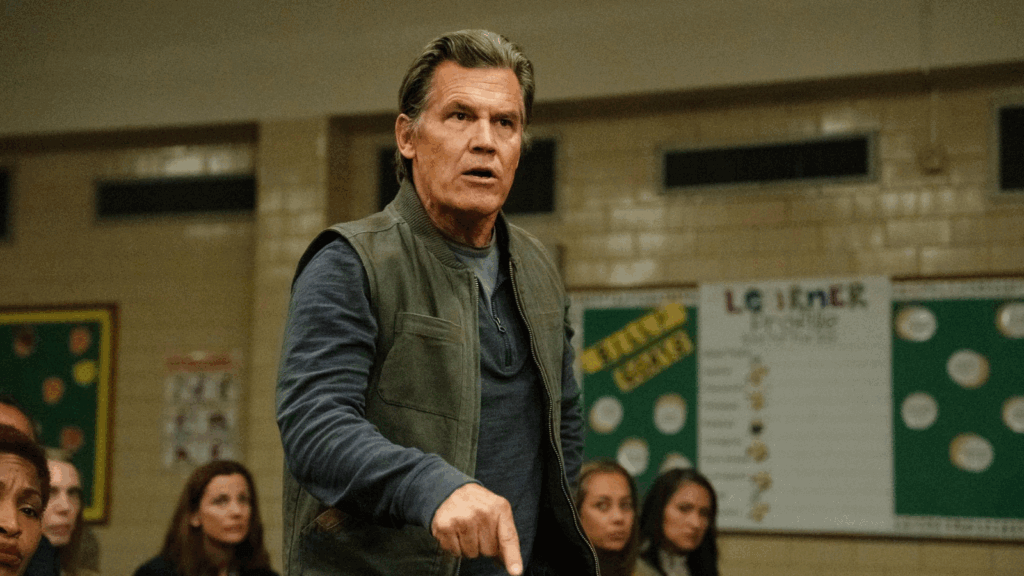
“This is a true story,” says an unnamed narrator, a young girl whose voice bookends the film. Who is this girl, and why did Cregger choose her to narrate? How is she privy to information she claims was covered up by the local authorities? The script never clarifies, but it establishes Weapons as a kind of macabre bedtime story, reminiscent of Hansel and Gretel and The Pied Piper. However thematically effective, the framing device is narratively distracting. Cregger doesn’t identify the narrator as an onscreen character, nor is she an omniscient presence in the film (like, say, Ricky Jay’s voiceover in Magnolia) who has all knowledge of what occurred because she’s an all-seeing storyteller. Presumably, she’s a well-informed student who heard about what happened second-hand and now passes the story along to establish an urban legend. But why has she chosen to tell this story in various chapters and from multiple perspectives? Another question: Why, after a month, haven’t the local police or federal investigators done the obvious and charted the children’s path like Archer does? Cregger doesn’t bother answering such questions, and the film lost its spell over me as I considered them afterward.
Post-movie deflation aside, it’s almost impossible not to feel the gravitational force of Cregger’s skill pulling you toward the film’s secrets, even if the outcome of Weapons has less to say compared to Barbarian. His production maneuvers every which way, and the audience goes along for the ride, delighted that he will deliver us to the destination, but not before showing us some awful things—some involving forks, a vegetable peeler, needles, and bugged-out eyes. There’s no time or chance to guess at how the story will play out; this isn’t a whodunit with a series of obvious clues. Weapons play like a rollercoaster operating in the dark, with passengers unable to see beforehand how the track takes abrupt, sharp turns or plunges into a sudden drop. Shot by cinematographer Larkin Seiple, whose two collaborations with the Daniels (Swiss Army Man, 2016; Everything Everywhere All at Once, 2022) demonstrate his ability to shift tones without losing cohesion, the film maintains an assured yet not excessively stylistic control that keeps the audience engaged and guessing.
Cregger also directs terrific performances from the ensemble, with Garner’s character slowly unraveling, Christopher suppressing Alex’s quiet desperation, Ehrenreich selling his impulsive cop, and Madigan using her natural Midwestern accent to typify the banality of evil. Some of the director’s strategies align with the aforementioned Longlegs and Ari Aster’s Hereditary (2018), characterized by slow-burning dread that accumulates before the gory, exhilarating finale. Weapons isn’t overly dependent on visual weirdness like Perkins’ film, nor does it have the emotional oomph of Aster’s. But like these and many other horror movies today—particularly those distributed by A24 and Neon—the mysterious and effective marketing that accompanies Weapons gives the audience just enough to arouse and reward their curiosity. And Cregger delivers. He is an unmistakably talented filmmaker, steering his audience with off-kilter sensations that are best experienced in a crowded theater without any prior knowledge. Yet, the filmmaker has now made two memorable films that may not work as well on a second viewing, given how rooted they are in catching the viewer unaware. As he continues to grow, I look forward to seeing whether he moves beyond his shock-value approach to explore his ideas with more depth.
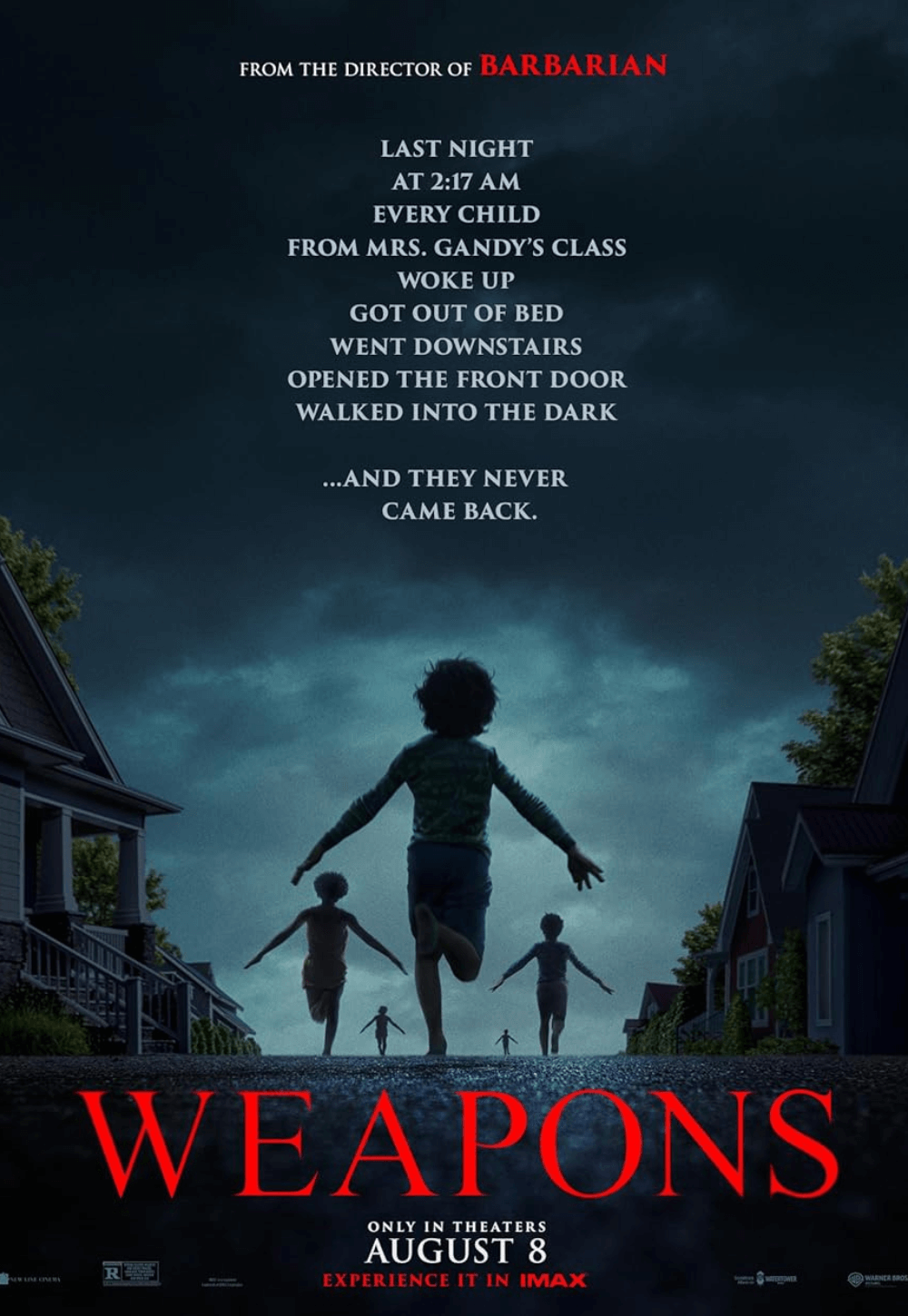
Thank You for Supporting Independent Film Criticism
If the work on DFR has added something meaningful to your love of movies, please consider supporting it.
Here are a few ways to show your support: make a one-time donation, join DFR’s Patreon for access to exclusive writing, or show your support in other ways.
Your contribution helps keep this site running independently. However you choose to support the site, please know that it’s appreciated.
Thank you for reading, and for making this work possible.
Brian Eggert | Critic, Founder
Deep Focus Review


